Section: Features
69 results
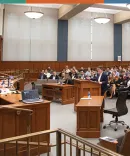
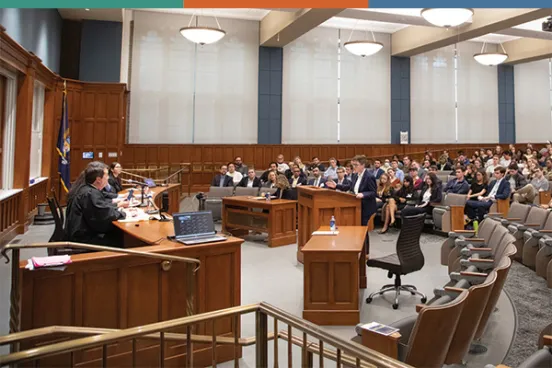
Features Summer 2025
Where Does the Campbell Moot Court Question Come From?
The 1928 Campbell Moot Court case involved a plaintiff who had fought in World War I and property he had conveyed to his fiance, who later died of tuberculosis. In the subsequent decades, hypothetical cases have involved a variety of topics, often reflecting current legal issues of the day.
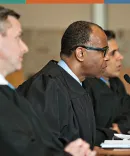
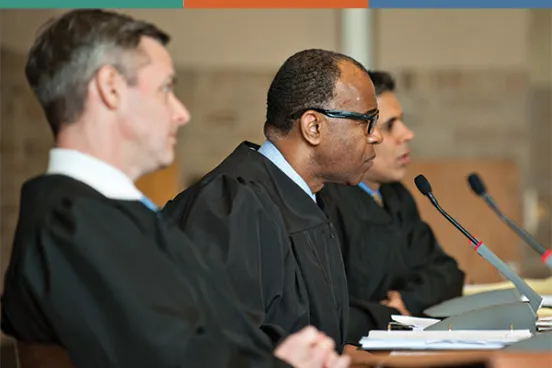
Features Summer 2025
Who Judges the Campbell Moot Court Competition?
Since its earliest years, the Campbell Moot Court Competition has welcomed a panel of notable judges to serve in the final round. Today’s competition relies on a large group—more than 70 this year—of legal practitioners, administrators, and faculty who grade the briefs and serve as judges in earlier rounds.
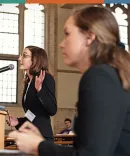
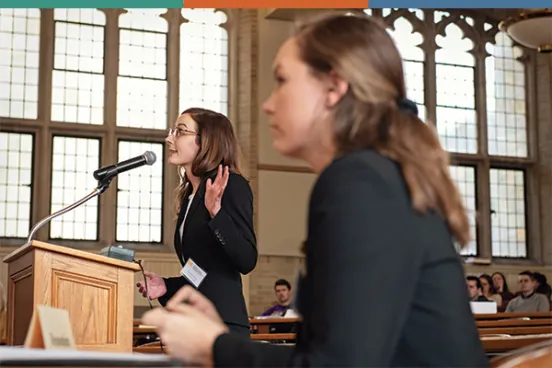
Features Summer 2025
Former Winners of the Campbell Moot Court Competition Reflect on the Experience
Michigan Law's Campbell Moot Court Competition has been a tentpole event in the Law Quad for a century and has shaped careers and provided generations of alumni with memories that endure. To commemorate the competition's 100th year, Law Quadrangle reached out to previous winners and asked for their stories, excerpts of which are included here.
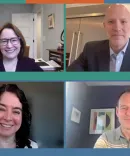
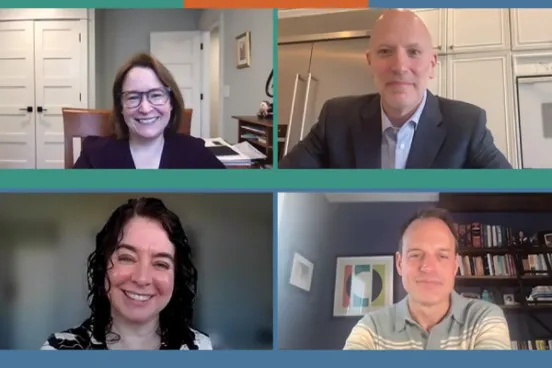
Features Summer 2025
2002 Campbell Finalists Reminisce, Two Decades Later
The 2002 Campbell Moot Court Competition pitted Catherine M.A. Carroll and John W. Ursu against Coreen Duffy and Ben C. Mizer. Despite the adversarial trappings, the students were linked not only by their success in the early rounds of competition—they also shared close friendships that endure today. Law Quadrangle recently convened the four friends on a videoconference to reflect on the experience, the friendships that defined their law school experiences, and the value of Campbell.
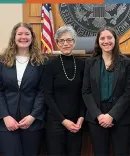
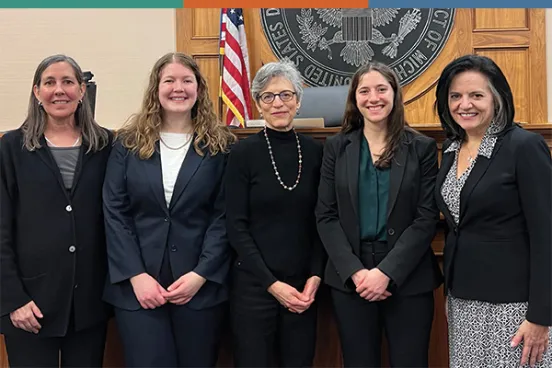
Features Summer 2025
A Multitude of Student Moots, On and Off the Quad
While the Henry M. Campbell Moot Court is the Law School’s most enduring competition, it is far from the only opportunity for students to hone their skills. From trial advocacy to international, bankruptcy, and other areas of the law, students have a variety of moot court choices.


Features Winter 2024-2025
Empirical Legal Research Becoming More Popular Among Faculty in Effort to Address Real-world Issues
Recent years have seen a new development in the legal academy: the rise of empirical, data-driven, and collaborative research. Scholars, including a number of Michigan Law faculty members, often hope to use such work to study the real-time effects of the law on people and institutions.

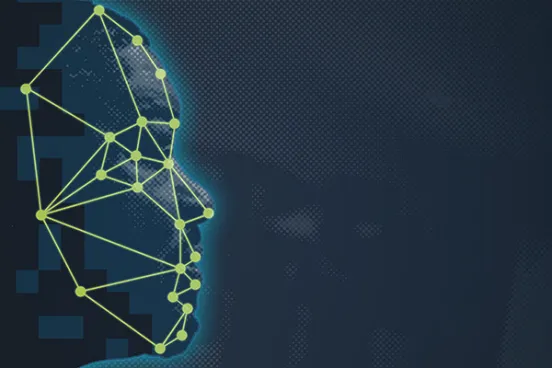
Features Winter 2024-2025
Flawed Facial Recognition Technology Leads to Wrongful Arrest and Historic Settlement
The Law School’s Civil Rights Litigation Initiative worked on behalf of a Michigan man falsely arrested for a crime based on flawed facial recognition technology. A first-of-its-kind settlement achieves the nation’s strongest police department policies and practices constraining law enforcement’s use of the technology.
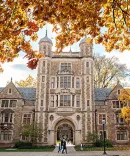
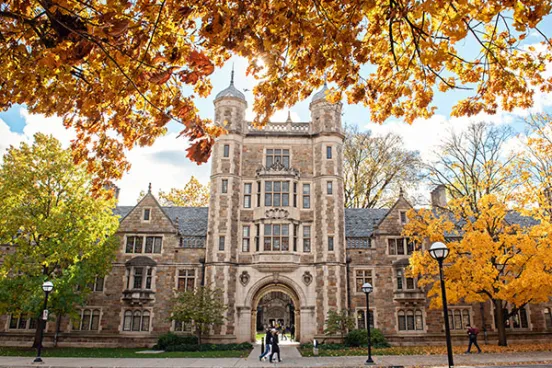
Features Summer 2024
Stories from the Lawyers Club
The Lawyers Club offered the setting for cherished memories for a century and counting. Here, alumni share a few of those experiences.
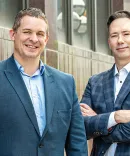
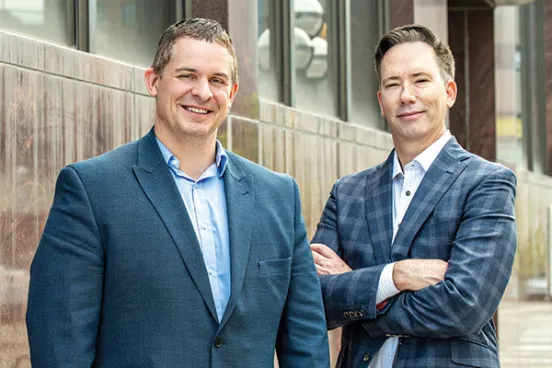
Features Summer 2024
Washtenaw County Prosecutor Eli Savit, ’10, and Professor J.J. Prescott Team Up on Transparency Project to Study Racial Disparities in Legal System
Even before he was elected Washtenaw County prosecutor in 2020, Eli Savit vowed to examine racial disparities in the county’s legal system. Led by Savit and Professor J.J. Prescott, the Prosecutor Transparency Project has released its analysis—and it hopes to serve as a model for similar efforts elsewhere.
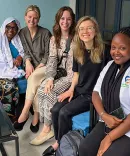
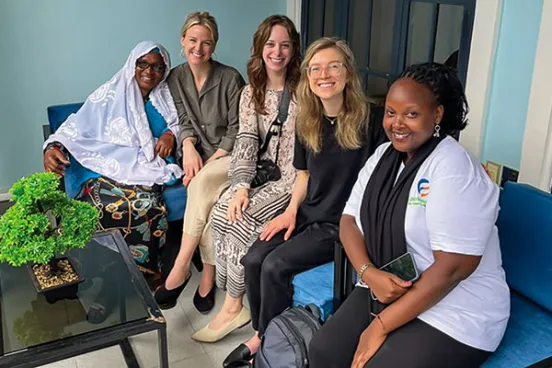
Features Summer 2024
Learning International Transaction Law on the Ground in Rwanda
During spring break in February, three Michigan Law students traveled to Kigali, Rwanda to meet with the management of BioMassters Limited, a client with whom they had been working all year in the International Transactions Clinic.

